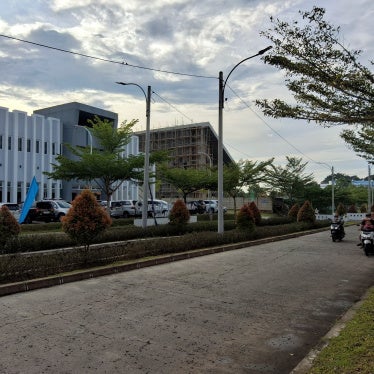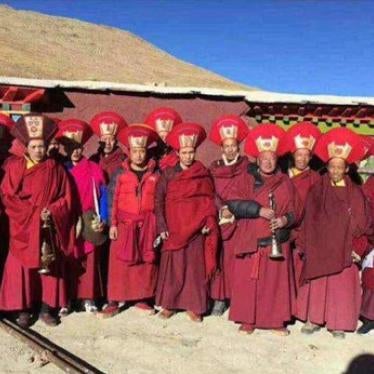As the world deliberates a U.S.-led war in Iraq and braces for more terrorist attacks, the international community has turned a blind eye to the killing of thousands of Muslims in India in the name of fighting terrorism.
A year ago today, a Muslim mob set fire to a train carrying Hindu activists in Godhra in the western state of Gujarat. Fifty-eight people were killed. In the days that followed, Hindus killed more than 2,000 Muslims throughout the state. Muslims were branded as terrorists while armed gangs set out to systematically destroy Muslim homes, businesses and places of worship. Scores of Muslim women and girls were gang-raped before being mutilated and burnt to death.
Collectively, Hindu nationalist groups are known as the sangh parivar. They exert considerable influence over India's social, educational and defense policies, including the country's decision to test nuclear weapons in 1998. Investigations by Human Rights Watch and numerous Indian human-rights groups revealed that attacks on Muslims were planned well in advance of the Godhra massacre. Mobs in Ahmedabad, for example, were guided by computer printouts listing the addresses of Muslim families and their properties, information they had been collecting over several months.
The attacks and other activities benefited the Bharatiya Janata Party by consolidating the Hindu vote-bank and ultimately securing victory. In December last year, the BJP won by a landslide in state elections in Gujarat. Using posters and videotapes of the Godhra massacre, and rhetoric that depicted Muslims as terrorists intent on destroying the Hindu community, the party gained the most seats in areas affected by communal violence.
The Hindus killed in Godhra were returning from Ayodhya in Uttar Pradesh, the site of a campaign led by the Vishwa Hindu Parishad, also known as the World Hindu Council, to construct a temple dedicated to Lord Ram on the site of a mosque destroyed by Hindu militants in 1992. Riots in Bombay in 1992 and 1993 following the destruction of the mosque claimed hundreds of lives, mostly Muslim. The BJP recently determined that the construction of the Ram temple, and the fight against terrorism, would form a core part of its electoral platform. Soon after their Gujarat win, BJP and VHP officials declared that the strategy used in Gujarat would be repeated all over India, raising concerns of further violence.
In states that go to the polls this year, such as Rajasthan and Madhya Pradesh, campaigns are already in full swing. As in Gujarat, members of the VHP are busy distributing literature in Rajasthan depicting Muslims as sexual deviants and terrorists. Members of both communities live in fear that a simple altercation could become the pretext for large-scale violence. In Madhya Pradesh, members of the Hindu Jagran Manch, a sangh parivar member, staged violent protests last week demanding unfettered access to an 11th century monument they claim is a temple and that Muslims have been using as a mosque. Two people were killed in the rioting that ensued.
The international community must put pressure on the Indian government to stop supporting communally divisive policies and end ongoing impunity for campaigns of orchestrated violence. One year since the beginning of the violence in Gujarat, there have been no convictions of those responsible. The machinery of justice in Gujarat has effectively been stacked against Muslims. Eyewitnesses have bartered their security and the security of their loved ones in exchange for turning "hostile" as prosecution witnesses, or simply not showing up when a case goes to trial.
Ongoing impunity also sows seeds for further violence. On Sept. 24 last year, two gunmen attacked a Hindu temple in Gandhinagar in Gujarat, killing 32 people. Handwritten notes found in the gunmen's pockets identified the attackers as members of a "movement for revenge," presumably for the violence against Muslims in the state.
The violence in Gujarat displaced more than 100,000 people. For months they resided in makeshift relief camps, afraid to return to what was left of their homes in Hindu-dominated neighborhoods. But between July and October, the government forcibly closed the camps. The onus of providing much needed relief and reconstruction has fallen largely on the Muslim community. Unlike the response to the devastating January 2001 earthquake in the state, funds from affluent Indians abroad have not been forthcoming. However, overseas Indians are funding VHP and Rashtriya Swayamsevak Sangh (National Volunteer Corps) organizations abroad that represent themselves as cultural, educational or humanitarian groups.
Unbeknown to charitable Indians who have donated millions, some of their money may be redirected for violent and sectarian purposes. Concerned about allegations linking charitable groups to violence, the U.K. Charities Commission is now investigating two RSS affiliates and is considering an inquiry into the VHP.
Indians living abroad must also demand accountability from these organizations. In so doing, they would be supporting the protests of many within India against the ongoing assault on India's proud tradition as a secular democracy, and against divisive political and economic power games fought in the name of promoting a Hindu state.
For now, Gujarat does not represent India. However, if the activities of some groups remain unchecked, violence could spread to other parts of the country and threaten the security of the subcontinent as a whole.
Smita Narula is Senior Researcher for South Asia at Human Rights Watch.






